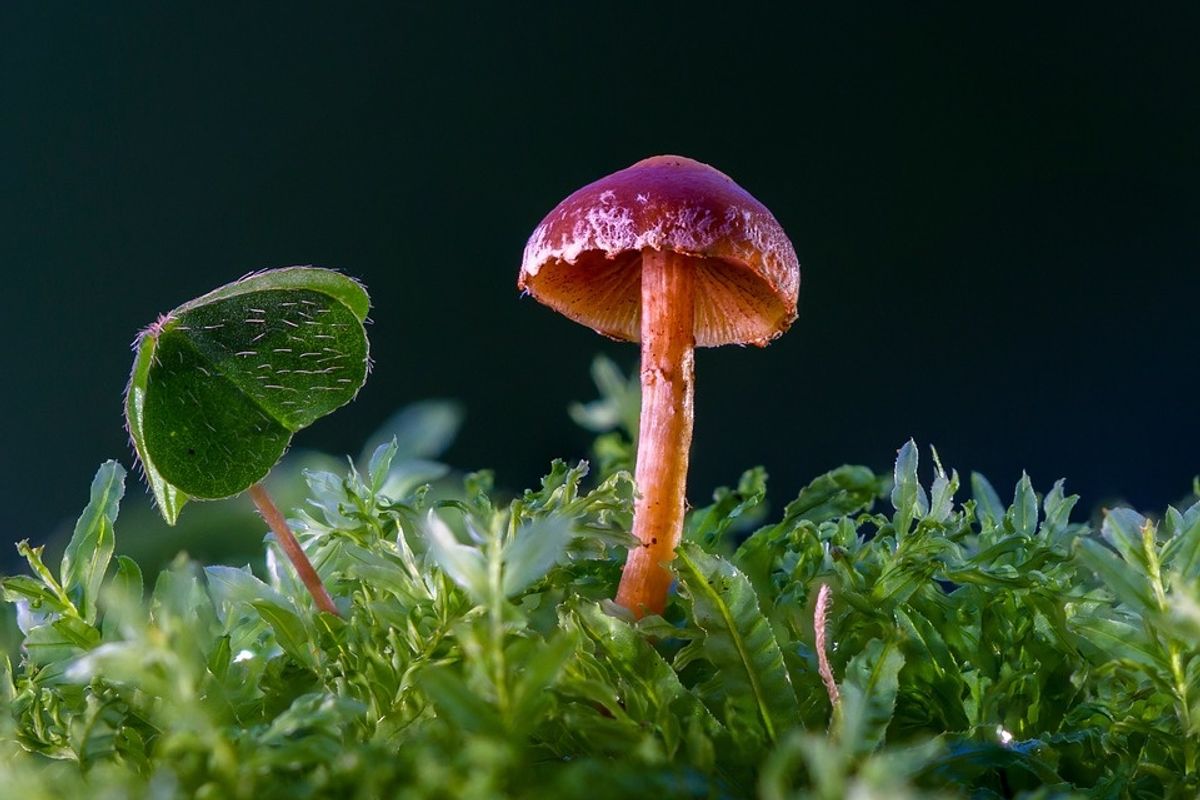Scientists discovered a mushroom that eats plastic, and believe it could clean our landfills.
Fungi Mutarium mushroom eats plasticwww.youtube.com
Plastic waste is one of the biggest environmental issues of our time. And while a straw ban is not the way we're going to solve it — here's why – people everywhere are looking for ways to reduce plastic use and mitigate the effects of waste.
From handing out plastic bags with embarrassing labels to removing the plastic from six-packs to harnessing the power of a plastic-eating mutant (bacteria), more and more of us are working to find solutions to a growing global program.
Add one more strange and awesome plastic-killing discover to the list: A rare mushroom that feasts on plastic the same way you or I would when we go to that $5 buffet at Cici's. (I have been only once and I'm still thinking about it, even though just the thoughts are bad for my blood pressure.)
According to reports, the mushroom's plastic-devouring properties were first discovered in 2011, when a team of Yale undergraduates and their professor traveled to Ecuador for a research trip. They found the mushroom — Pestalotiopsis microspora — in the amazon and were astounded to find that the fungus not only subsists on polyurethane (it's the first plant to sustain itself only on plastic), but could do so without oxygen.
That means it could be planted at the bottom of landfills and happily eat its fill of plastic for eons to come! (Just like us at Cici's pizza!)

Despite our best efforts at increasing conservation and reducing waste, the U.S. continues to produce more plastic waste each year, while other recent studies suggest that recycling of plastic waste is actually declining.
The amount of plastic waste that we're producing is estimated to rise 3.8% each year, with an estimated 40 million tons of plastic waste expected to be generated in 2019 alone by American companies and consumers. National Geographic says that over the past 60 years, we've created an estimated 8.3 billion metric tons of plastic waste. An astonishing 83.7% of that waste is expected to end up in landfills. Anything we can do to put a dent into the damage we're creating could make a world of difference for us and the planet.

Will these mushrooms be the end to our plastic problems? More research is needed to tell. Until then, we can all help keep landfills cleaner by avoiding single-use plastics in our lives.
- “ What do y'all think about this? as ... - GOOD on Instagram ›
- What do portobello mushrooms have to do with better batteries ... ›
- Talented Documentarian Makes Mushrooms Into The Most ... ›
- Getting buried in this suit of mushrooms could help save the planet ... ›
- Foraging TikTokker shares what she eats and it's fascinating - Upworthy ›
- Foraging TikTokker shares what she eats and it's fascinating - Upworthy ›
- Over 200,000 people have signed up to storm Area 51 and get the truth about aliens. - Upworthy ›
- Greenpeace just named the best and worst grocery stores for the planet. - Upworthy ›
- Mushroom - Wikipedia ›
- Mushroom Gallery: Types, Health benefits, and Tips for Cooking ›
- Mushroom Nutrition: Health Benefits, Calories, Vitamins, and Facts ›
- Magic Mushrooms Effectively Decriminalized In Oakland : NPR ›
- Denver votes to decriminalise magic mushrooms by razor-thin margin ›
- 11 Interesting Mushroom Benefits | Organic Facts ›
- Magic mushrooms decriminalization: Denver poised to become first ... ›
- The Heady, Thorny Journey to Decriminalize Magic Mushrooms ... ›
- They're magic! Eating mushrooms could slash risk of cognitive ... ›
- Magic mushrooms should be decriminalised - Mushroom clouds ›

